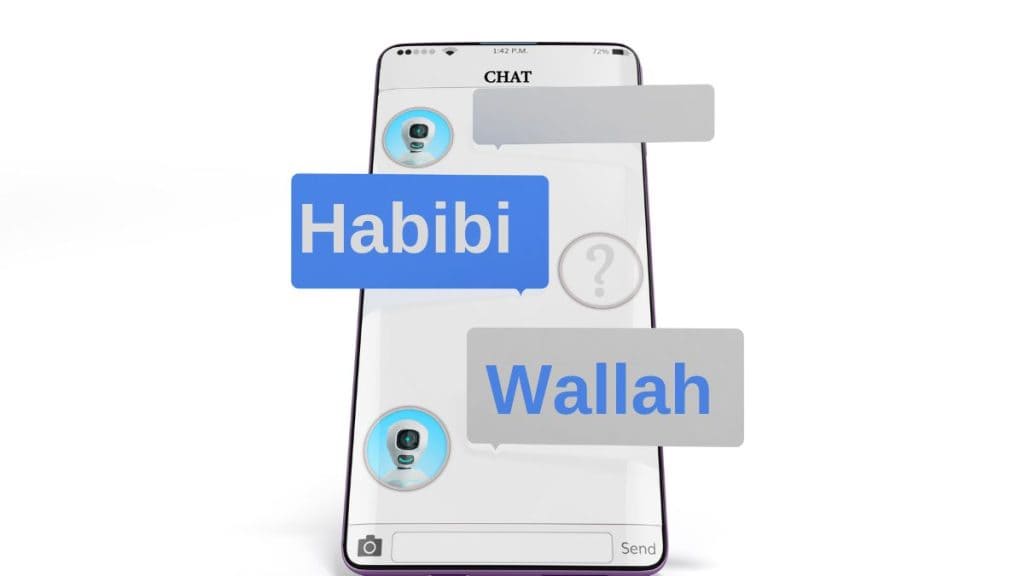Habibi is one of the most commonly used Arabic words and has gained international recognition, especially through music, social media, and everyday conversations. While many people use it casually, not everyone fully understands its meaning or the cultural significance behind it. The word carries a sense of warmth and affection, but its use varies depending on the relationship between the speakers, the tone, and the context.
Though often associated with romantic relationships, Habibi is not limited to lovers. It can be used in friendships, family settings, and even as an informal term of endearment between acquaintances. To truly understand its meaning and correct usage, it is important to look at how the word functions in different social and linguistic settings.
What Does Habibi Mean?

Habibi is an Arabic word that translates to “my love” or “my dear” in English. It comes from the root word “Habib” (حبيب), which means beloved. The suffix “-i” at the end makes it possessive, so Habibi literally means “my beloved.”
While the word is gendered in Arabic, it is commonly used in two forms:
- Habibi (حبيبي) – Used when addressing a male.
- Habibti (حبيبتي) – Used when addressing a female.
Though originally rooted in Arabic, Habibi has crossed cultural and linguistic barriers, making it a widely recognized term even among non-Arabic speakers.
Cultural and Social Use of Habibi
Arabic-speaking communities use Habibi in various social interactions, from close friendships to casual encounters. While some languages have terms strictly reserved for romantic partners, Habibi is much more flexible.
When Is Habibi Used?
- Between close friends – It is common for men to address their male friends as Habibi in casual conversations.
- Within families – Parents may call their children Habibi, and vice versa.
- Between lovers – The term is frequently used by couples as an affectionate pet name.
- As a friendly greeting – Some use Habibi with acquaintances to sound warm and welcoming.
- In business settings – While less formal, it is sometimes used between colleagues in a relaxed work environment.
The way Habibi is used depends on the tone and familiarity between speakers. Saying it in a playful or exaggerated manner might be interpreted differently than using it with genuine affection.
Habibi in Modern Conversations & Social Media
Thanks to music, movies, and social media, Habibi has become a popular term worldwide. Many non-Arabic speakers use it playfully in captions, comments, and casual conversations.
It frequently appears in TikTok trends, Instagram captions, and viral memes, often as an expression of excitement, admiration, or humor.
Arabic music, especially in genres like pop and rap, has helped introduce the word to a global audience.
Misconceptions and Common Mistakes with Habibi

Despite its widespread use, some misunderstandings exist about the word Habibi. Many people assume it is strictly romantic, but this is not true.
Common Misconceptions About Habibi:
- It’s only for lovers – While romantic partners frequently use it, Habibi is also used between friends, family, and even acquaintances.
- It means “darling” in all contexts – Although Habibi translates to “my love” in English, the cultural meaning is broader, and its tone depends on who is using it.
- Everyone can say “Habibi” – While it is common, men should use Habibti when speaking to women for grammatical correctness.
- It’s always appropriate – In formal situations, using Habibi may be seen as too casual or unprofessional, so it’s best reserved for relaxed conversations.
Understanding the context of when and how to use Habibi helps avoid awkward or incorrect usage.
Conclusion
Habibi is more than just a slang term—it is a deeply ingrained part of Arabic culture, used to express affection, warmth, and connection. While its literal meaning is “my love”, its usage extends far beyond romance, making it a versatile word for friendship, family, and general endearment.
The global recognition of Habibi through music, social media, and pop culture has made it a beloved expression worldwide. However, understanding its proper use, context, and cultural significance ensures that it is spoken in a way that is both meaningful and respectful.